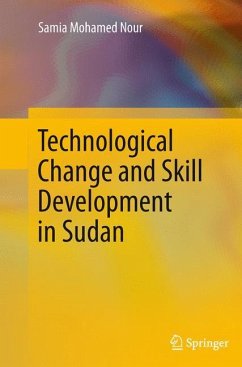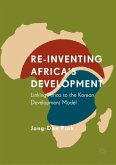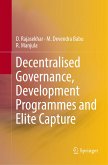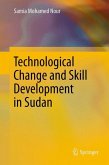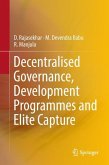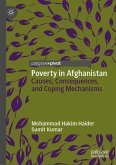This book provides an economic analysis of various aspects of 'market quality', a new concept which emerged in the 21st century, using the tools of 'oligopoly theory' and 'auction theory' that evolved over the 19th and 20th centuries. In the economics literature the link between the theories of oligopoly and auctions with market quality remains largely unexplored. This book attempts to forge such a link as it brings together relevant theoretical results in the literature on these topics under a unified framework. While the book is mainly theoretical in nature, it also discusses some specific issues related to the problems of market quality in emerging economies like India. Illustrated by carefully chosen examples, this book is highly recommended to readers who seek an in-depth and up-to-date integrated overview of the new field of market quality economics and are interested in some open research problems in this area.
How should auctions and other allocation mechanismsbe designed for oligopolistic industries to achieve such goals as efficiency, high-quality output and fast production? Krishnendu Ghosh Dastidar's book offers novel analysis of this question and also some interesting answers. Highly recommended.
Eric S. Maskin, Nobel laureate in Economics
How should auctions and other allocation mechanismsbe designed for oligopolistic industries to achieve such goals as efficiency, high-quality output and fast production? Krishnendu Ghosh Dastidar's book offers novel analysis of this question and also some interesting answers. Highly recommended.
Eric S. Maskin, Nobel laureate in Economics
"This is a book of high quality bringing to bear sophisticated theoretical analysis on problems of practical interest. ... it will be fully appreciated only by specialists, the author makes a sincere effort to make it accessible to non-specialists by providing extensive background material and summaries." (Arunava Sen, Journal of Quantitative Economics, Vol. 17, 2019)
"The book is primarily a theoretical contribution to the economics of market quality. Here, the author is in his usual self and has done the job very meticulously. ... this is an interesting reading for the researcher and advanced undergraduate and graduate students who know oligopoly and auction theory. Any researcher having an interest in applied theory related to market quality would find it very useful as there are some open questions which they can pick up and pursue." (Uday Bhanu Sinha, Indian Economic Review, August, 2018)
"The issues and problems dealt with in this book are motivated by real-life examples, mostly from emerging economies. The treatment is entirely theoretical, but possible directions of application are indicated. This book will be extremely useful for graduate students of economics and management sciences for starting a systematic inquiry into this area." (Diganta Mukherjee, Studies in Microeconomics, Vol. 6 (1-2), 2018)
"The book is primarily a theoretical contribution to the economics of market quality. Here, the author is in his usual self and has done the job very meticulously. ... this is an interesting reading for the researcher and advanced undergraduate and graduate students who know oligopoly and auction theory. Any researcher having an interest in applied theory related to market quality would find it very useful as there are some open questions which they can pick up and pursue." (Uday Bhanu Sinha, Indian Economic Review, August, 2018)
"The issues and problems dealt with in this book are motivated by real-life examples, mostly from emerging economies. The treatment is entirely theoretical, but possible directions of application are indicated. This book will be extremely useful for graduate students of economics and management sciences for starting a systematic inquiry into this area." (Diganta Mukherjee, Studies in Microeconomics, Vol. 6 (1-2), 2018)


